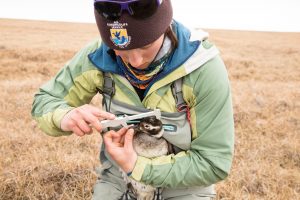Hello! We’re happy you’ve made it this far. The Arctic is a complex and fascinating place, and there are many organizations and individuals around the world working hard to learn more about this vast region and advocate for its peoples, species, and the natural environment. This page offers a plethora of resources to explore more Arctic topics, policies, and challenges.

Policy Developments and Campaigns:
– The National Oceanic and Atmospheric Administration (NOAA) is an American scientific agency that focuses on the conditions of the oceans, major waterways, and the atmosphere. Read about what they think about the Arctic here: NOAA’s Arctic Action Plan
– The Inuit Circumpolar Council (ICC) is multinational NGO that represents indigenous peoples living in the Arctic region. Read about what freedom in the Arctic means to them here: A Circumpolar Inuit Declaration of Sovereignty in the Arctic (April 2009).
– What does the Arctic Council think about sustainability in the ocean? If you’re wondering the answer to that question, click here: Arctic Council: Cooperation for a Sustainable Arctic Ocean
– Is Iceland partaking in any mitigation strategies alongside their adaptation strategies? Check out this article about injecting CO2 deep into Icelandic bedrock as a form of carbon sequestration.
– What else has the Denali Commission done to support Alaskan communities through the Village Infrastructure Protection program? Learn more on the Village Infrastructure Protection website
– What information has the United States Geological Survey uncovered about environmental threats to the Arctic? Visit Region 11: Alaska to learn more about what the USGS has done for Alaska.
- *Add your issue-focused developments*
- Where can the visitor go to keep up with policy developments on these issues? Are there international organizations or government decision-making bodies that are involved? Are there relevant NGO campaigns or community efforts?
Arctic in the News:
- The Guardian: Melting Ice and Bowhead Whales
- U.S. Secretary of State Antony Blinken is set to visit Iceland
- Earth Magazine: How the Arctic became salty
- 2021 Camden Conference: The Geopolitics of the Arctic: A Region in Peril
- Alaskan village threatened by rising sea levels votes for costly relocation | Alaska | The Guardian
Policy Recommendations:
Through our research on various issues revolving around managing the effects of climate change in the Arctic, we have come up with a policy recommendation to help communities across the region adapt to new situations. The world is already seeing the harmful effects of climate change in the Arctic, and these effects, to a certain extent, are going to continue to persist even with mitigation efforts. Therefore, we support the creation of a new international aid group called the Arctic Adaptation Association (AAA), which is dedicated to assisting Arctic regions with adapting to and planning for the changes they will experience now and in the future with specialized responses to the complex, diverse issues we are witnessing. The ultimate goal is to combine best practices from local, national, and international experts and use these practices to oversee unique and equitable adaptation and relief measures throughout the Arctic.
The AAA would consist of several different task forces that focus on different kinds of adaptations needed in the Arctic region. Whether it is communities threatened by receding coastlines that need to be relocated, ways to use the changing environment to help local communities by providing electricity, or focused efforts on supporting and conserving the wildlife as they face new challenges in their ecosystems, these tasks forces would provide specialized attention to their specific issue with a focus on knowledge co-production and communication with the local communities that these efforts are aiding. Ensuring that Adaptation Plans are equitable and have the support of the local communities is of the utmost importance, while still being able to bring in outside resources to mix with local knowledge to come up with solutions that best tackle the problems and make life in the Arctic better for all who live there.
Make an Impact in the Arctic!
Do you have ideas about how your visitor could influence policy-makers to focus on the Arctic and the challenges in the region? Could they write a letter, post on social media, make a donation, support a community group